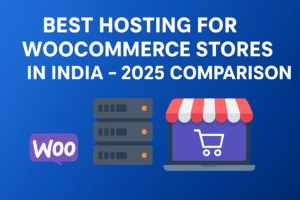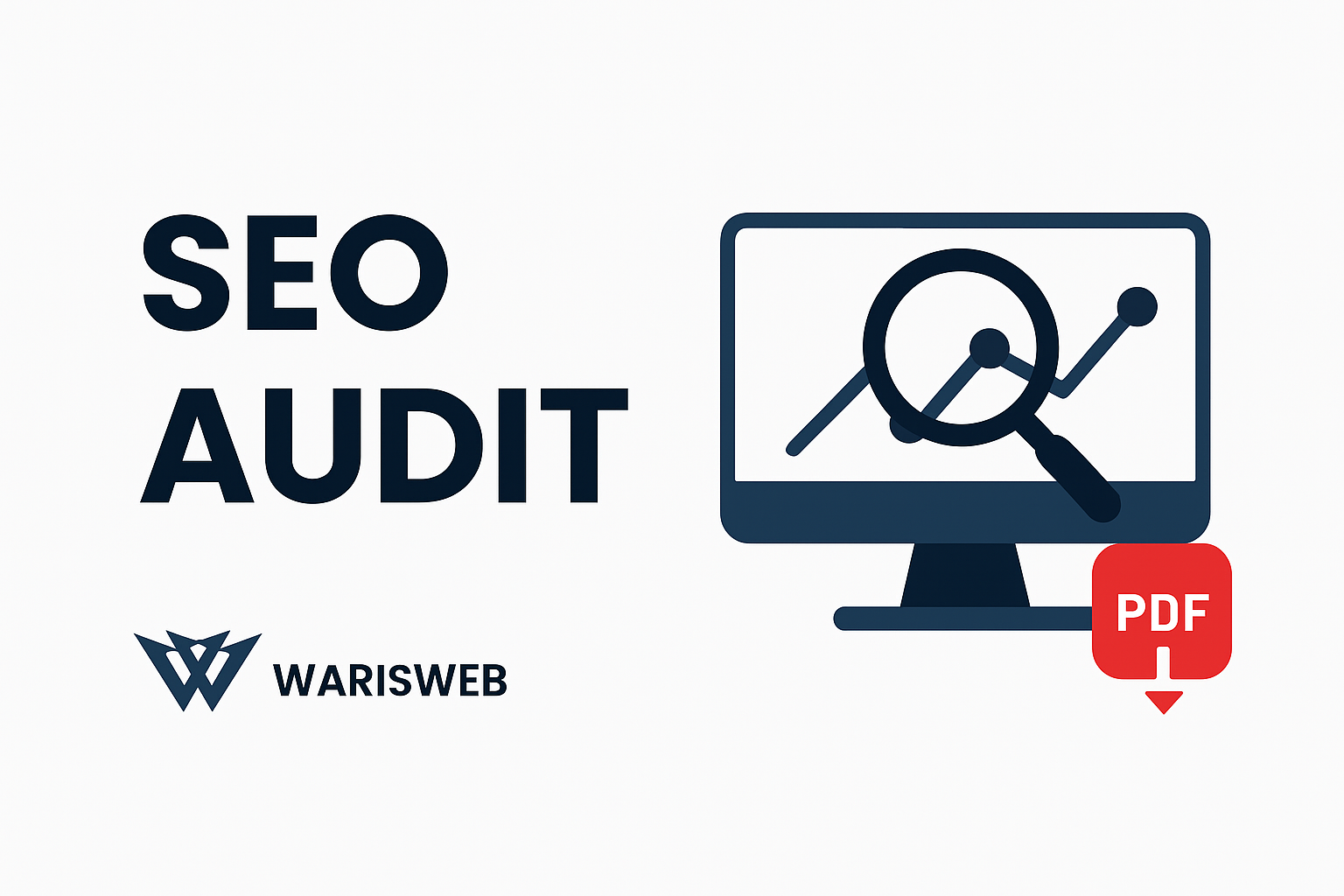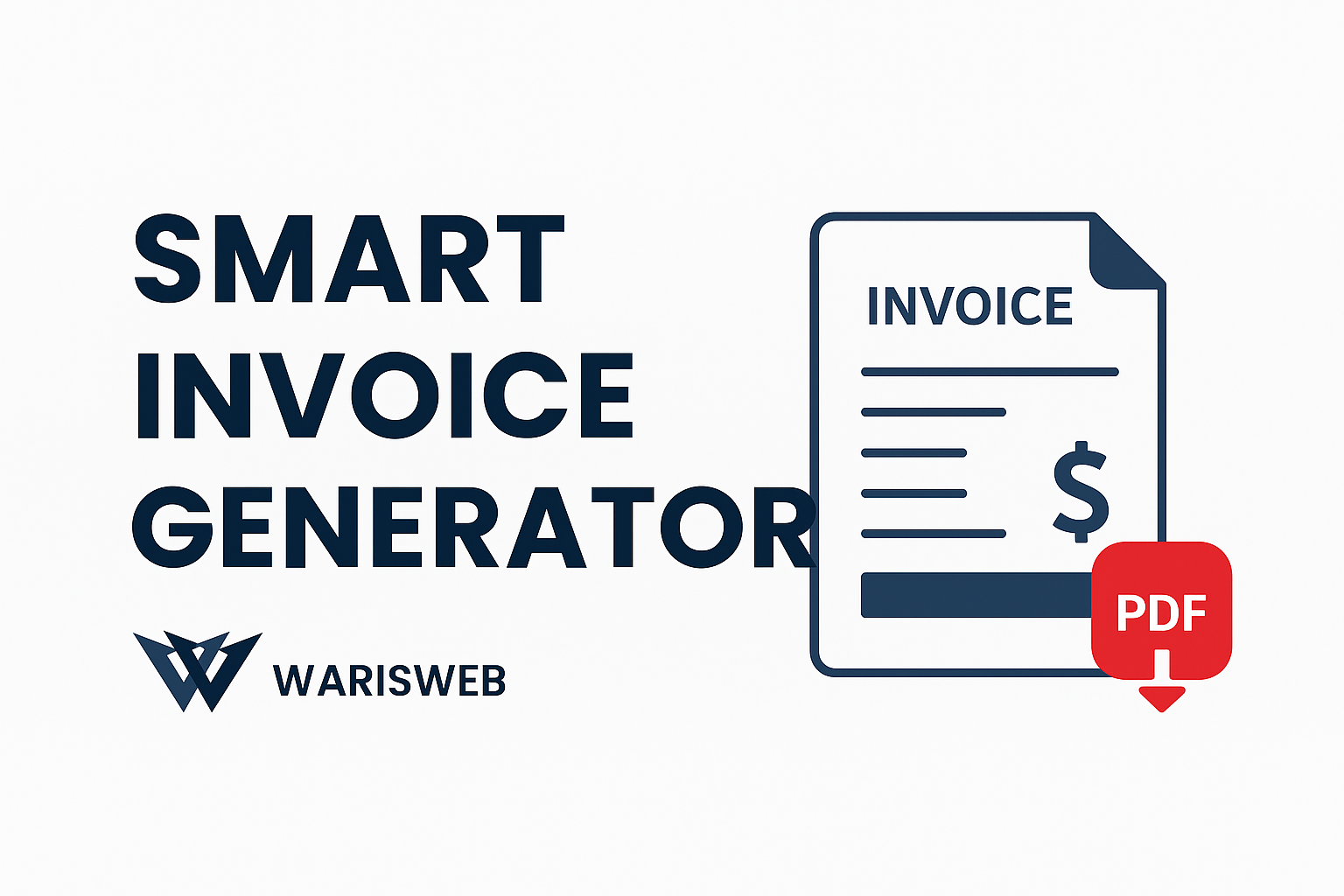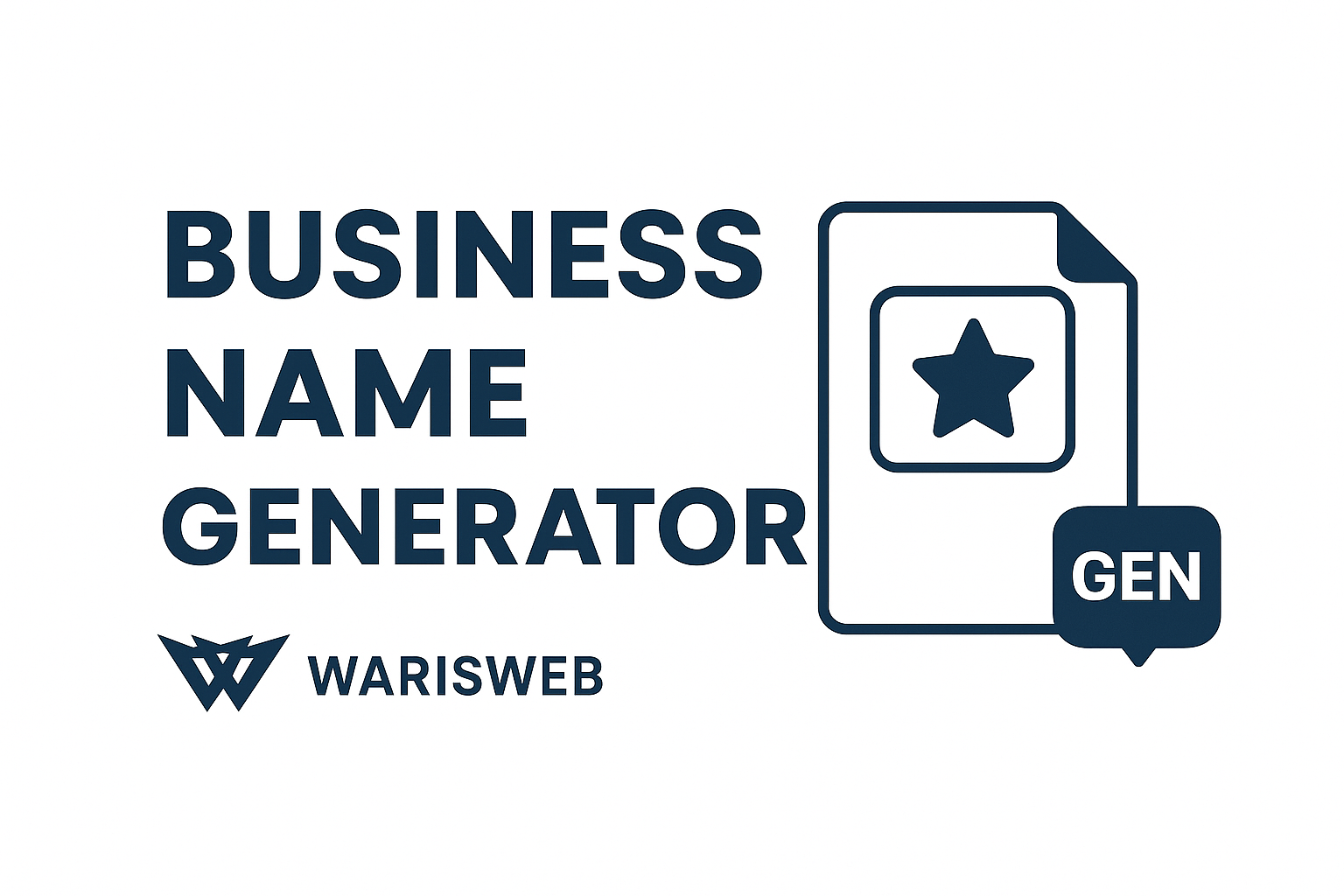Top Data Analytics Certifications for Beginners in 2025
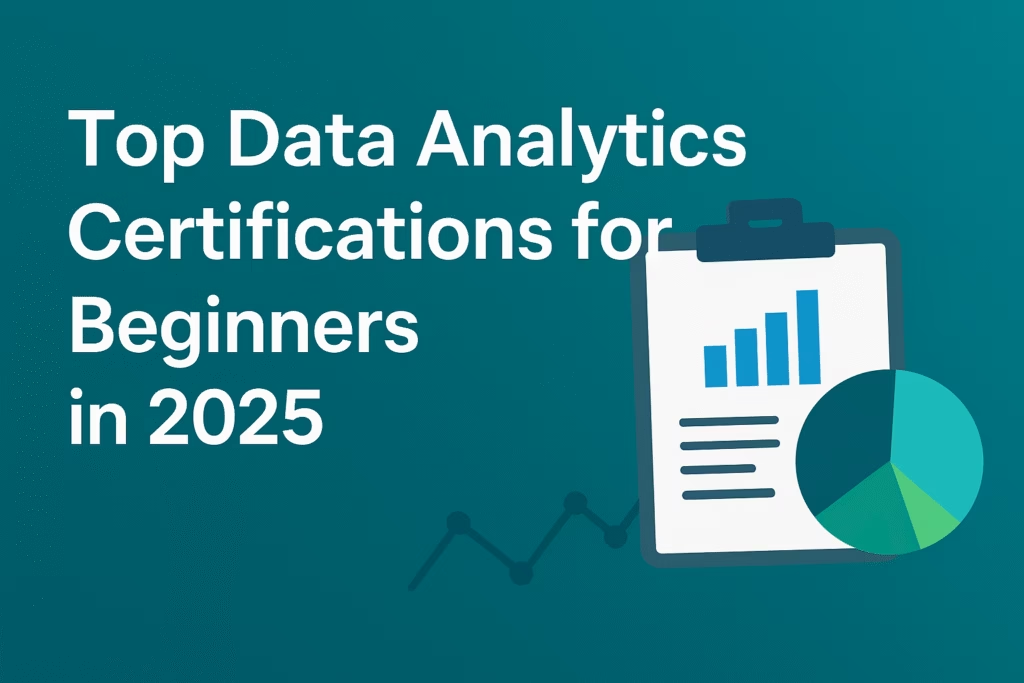
Let me be blunt: if you’re not thinking about data analytics in 2025, you’re missing out on one of the biggest career opportunities of our time. I’ve been watching this field explode over the past few years, and what I’m seeing now is frankly incredible.
Companies are drowning in data but starving for people who can actually make sense of it all. Whether it’s a startup trying to understand user behavior or a Fortune 500 company optimizing supply chains, everyone needs data analysts. And here’s the kicker – you don’t need a computer science degree to get started.
What really excites me about data analytics is how accessible it’s become. The barriers to entry that existed even five years ago have largely disappeared. You can literally go from zero to hired in six months with the right certification and some dedication. I’ve seen it happen countless times.
But let’s talk numbers because that’s what data people love, right? The field is projected to grow at an absolutely staggering rate, and the salary prospects are genuinely life-changing for beginners.
Why Start with a Data Analytics Certification in 2025?
The timing couldn’t be better to jump into data analytics. Here’s what the current landscape looks like, and trust me, these numbers will get your attention.
Huge Demand in AI, Business, and Startups
The data analytics market size is projected to grow from $7.03 billion in 2023 to $303.4 billion in 2030 at a CAGR of 27.6% – that’s not just growth, that’s an explosion. Compare that to most other jobs growing at 10-15%, and you’ll understand why everyone’s talking about data analytics.
What’s driving this insane demand? AI and machine learning are everywhere now, but they’re useless without clean, organized data. Every AI model, every automated decision, every business insight starts with someone who knows how to wrangle data. That someone could be you.
Entry-Level Opportunities for Beginners
Here’s something that might surprise you: entry-level salaries have increased significantly to $90,000—the average is up by $20,000 from 2024. We’re talking about genuinely good money for people just starting out.
And it’s not just about the salary. There are over 251,000 open jobs in data analytics with a median entry-level salary of $95,000 in the U.S. That’s not some pie-in-the-sky projection – that’s real jobs available right now.
No Degree Required to Get Started
This is probably the most democratizing aspect of data analytics. While traditional tech roles often demand computer science degrees, data analytics cares more about what you can do than where you went to school. Employers are looking for candidates with proven skills in tools like SQL, Excel, Python, and Power BI, as well as strong data analytics skills.
Certifications serve as that proof. They demonstrate not just knowledge, but your commitment to learning and your ability to complete complex projects independently – exactly what employers want to see.
Best Data Analytics Certifications for Beginners (2025)
After analyzing the current market and talking to hiring managers, here are the certifications that are actually opening doors in 2025:
Google Data Analytics Professional Certificate (Coursera)
Duration: 6 months Beginner-friendly, industry recognized
Let me start with the elephant in the room – this is probably the most talked-about certification in data analytics right now, and for good reason. When it comes to entry-level analytics credentials, the Google Data Analytics Professional Certificate often tops the list of best data analytics certifications.
What makes this certification special isn’t just Google’s name recognition (though that doesn’t hurt). It’s the practical, hands-on approach. You’ll work with real datasets, learn industry-standard tools, and build a portfolio that you can show to employers immediately.
The salary potential is real too. The average annual pay for a Google Data Analytics Certificate holder in the United States is $81,518 a year, which translates to about $39.19 an hour. For a beginner certification, that’s genuinely impressive.
The Google Data Analytics Certificate can be completed in three months working approximately 20 hours per week, or in six months working 10 hours per week. The flexibility is perfect if you’re working while studying or have other commitments.
IBM Data Analyst Professional Certificate
Duration: 4–6 months Covers Excel, SQL, and visualization
IBM might not have the consumer brand recognition of Google, but in the enterprise world, IBM’s name carries serious weight. This certification covers the full spectrum of data analytics tools and techniques.
What I love about the IBM program is its focus on practical skills. You’ll learn Excel (yes, it’s still crucial in 2025), SQL for database management, Python for data manipulation, and various visualization tools. It’s comprehensive without being overwhelming.
The IBM certification also has excellent industry recognition. When hiring managers see IBM on your resume, they know you’ve been trained on enterprise-grade tools and methodologies.
Microsoft Certified: Data Analyst Associate
Best for Power BI learners Industry credibility
If you want to work with medium to large companies, this certification is gold. Power BI is Microsoft’s business intelligence platform, and it’s become the standard for data visualization in corporate environments.
This certification is perfect if you’re more interested in the business intelligence side of data analytics rather than the hardcore programming aspects. You’ll learn to create dashboards, reports, and visualizations that executives actually use to make decisions.
The Microsoft ecosystem is massive, and having this certification opens doors to countless opportunities in companies that use Microsoft’s suite of business tools.
FreeCodeCamp Data Analysis with Python
100% free Self-paced, great for beginners
Let’s talk about the elephant in the room – budget. Not everyone can afford paid certifications, and that’s okay. FreeCodeCamp’s Data Analysis with Python certification is completely free and surprisingly comprehensive.
You’ll learn Python programming fundamentals, data manipulation with pandas, data visualization with matplotlib, and statistical analysis. The curriculum is hands-on, with real projects that you complete and can add to your portfolio.
The catch? It requires more self-discipline since there’s no paid accountability structure. But if you’re motivated and budget-conscious, this is an excellent starting point.
Coursera Data Analytics for Beginners Specialization
Hands-on projects Flexible learning
This is actually a collection of courses that work together to give you a comprehensive foundation in data analytics. What sets it apart is the focus on practical projects from day one.
You’ll work on real business problems, build actual dashboards, and create presentations that mirror what you’d do in a real job. The portfolio you build through this specialization is often strong enough to land interviews.
The flexibility is another major advantage. You can pause, restart, and learn at your own pace while still getting structured guidance and feedback.
Free vs Paid Certifications for Beginners
This is probably the most common question I get: should you start with free or paid certifications? The honest answer is – it depends on your situation and goals.
Free Options (FreeCodeCamp, YouTube guides)
Free certifications are perfect for testing the waters. They let you explore data analytics without financial risk and help you determine if this field is right for you. FreeCodeCamp, Khan Academy, and even high-quality YouTube channels offer excellent foundational content.
The downside? Free certifications don’t carry the same weight with employers. They’re fantastic for learning skills, but they might not be enough to land that first job on their own.
Paid = Credibility, Recognized by Employers
In a 2024 survey, the BLS found that professionals with either a certification or license faced lower levels of unemployment and earned more on average than those without either. That’s data we can trust.
Paid certifications from recognized providers like Google, IBM, or Microsoft signal to employers that you’ve made a serious commitment to the field. They’re more rigorous, offer better support, and typically include career services that can help with job placement.
My recommendation? Start with free resources to build foundational knowledge and confirm your interest, then invest in a recognized paid certification to validate your skills professionally.
How to Choose the Right Data Analytics Certification
Choosing the wrong certification is like buying a car without checking if it runs – you might end up disappointed and out of money. Here’s how to choose wisely:
Based on Career Goals
Are you interested in business intelligence and working with executives, or do you prefer the technical side of data manipulation and analysis? Your answer should guide your certification choice.
For business-focused roles, consider Microsoft’s Power BI certification or Google’s Data Analytics certificate. For more technical roles, lean toward Python-focused programs or IBM’s comprehensive certification.
Software/Tools Covered (Excel, SQL, Python, Power BI)
Employers are looking for candidates with proven skills in tools like SQL, Excel, Python, and Power BI. Make sure your chosen certification covers the tools that appear most frequently in job postings for your target roles.
SQL is non-negotiable – every data analyst needs to know how to query databases. Excel is still surprisingly important in 2025, especially in traditional industries. Python or R for statistical analysis, and some visualization tool (Power BI, Tableau, or similar) round out the essential toolkit.
Time and Cost
Be realistic about your constraints. Some certifications require months of intensive study, while others can be completed in weeks. Similarly, costs range from free to several thousand dollars.
Consider your current situation: Are you working full-time? Do you have family obligations? How much can you realistically invest? There’s no point choosing a certification you can’t complete.
Conclusion
Looking at the data analytics landscape in 2025, I’m genuinely excited about the opportunities available for beginners. Data analytics skills are in high demand, and a credible certification will help you stand out to employers and tackle complex data projects with confidence.
The numbers don’t lie – this field is exploding, salaries are rising, and the barriers to entry are lower than they’ve ever been. Whether you start with a free course to test the waters or jump straight into a comprehensive paid program, 2025 is an excellent time to begin your data analytics journey.
Remember, the best certification is the one you’ll actually complete and apply. Start where you are, use what you have, and focus on building real skills that solve real problems. Your future data analytics career is waiting, and honestly, the opportunities have never been better.
Frequently Asked Questions?(FAQ's)
Absolutely! The field has become much more accessible, with plenty of beginner-friendly courses and certifications available that require no prior experience. Most programs are designed to take you from zero to job-ready in 3-6 months.
The Google Data Analytics Certificate is consistently ranked as one of the best entry-level options in 2025. It’s comprehensive, industry-recognized, and offers excellent job placement support through Google’s career services.
Yes, they’re excellent for learning basics and testing your interest in the field. However, paid certifications from recognized providers carry more weight with employers and often include valuable career services and
Most beginner certifications take 3–6 months with consistent learning. Google’s certificate can be completed in 3 months at 20 hours per week, while others like IBM’s program typically take 4-6 months depending on your pace and schedule.
Share This Post:
Previous Articles:

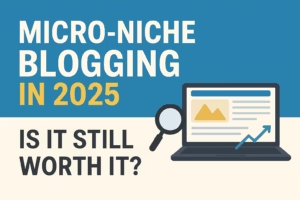
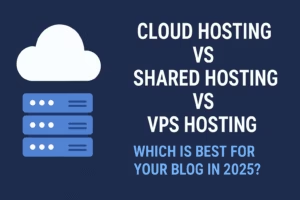
Cloud Hosting vs Shared Hosting vs VPS: Which is Best for Your Blog (2025)?
